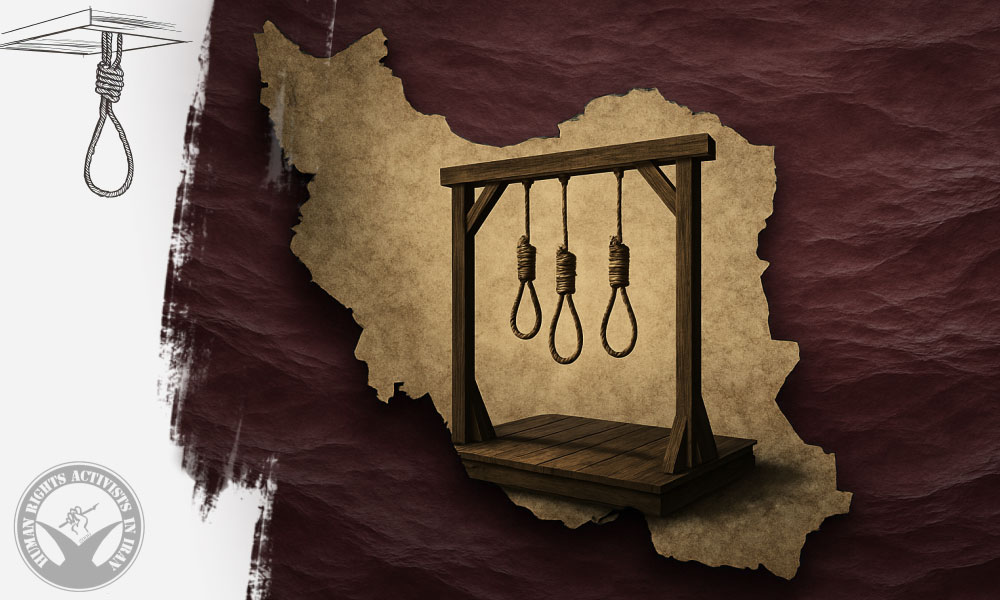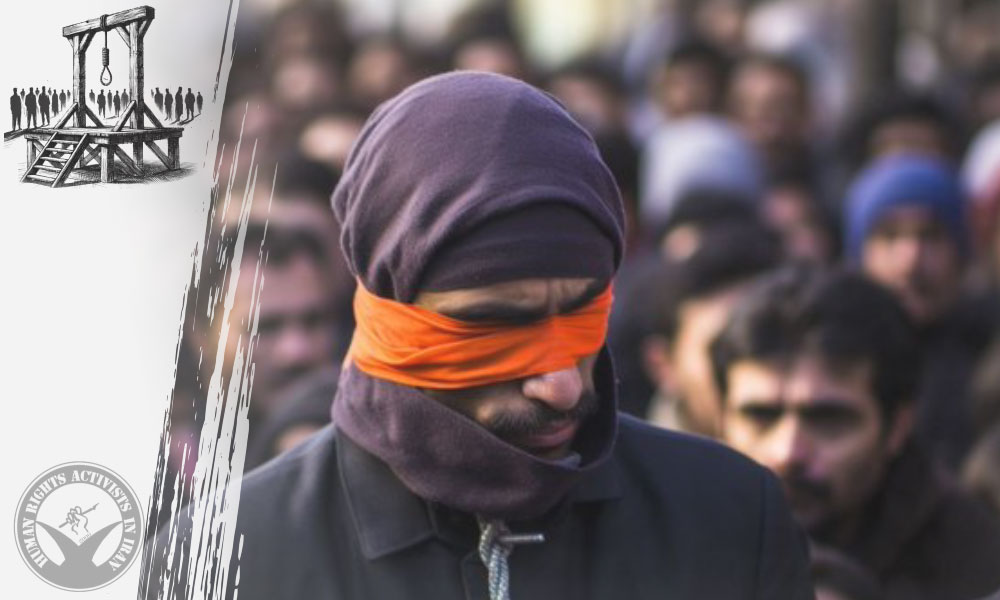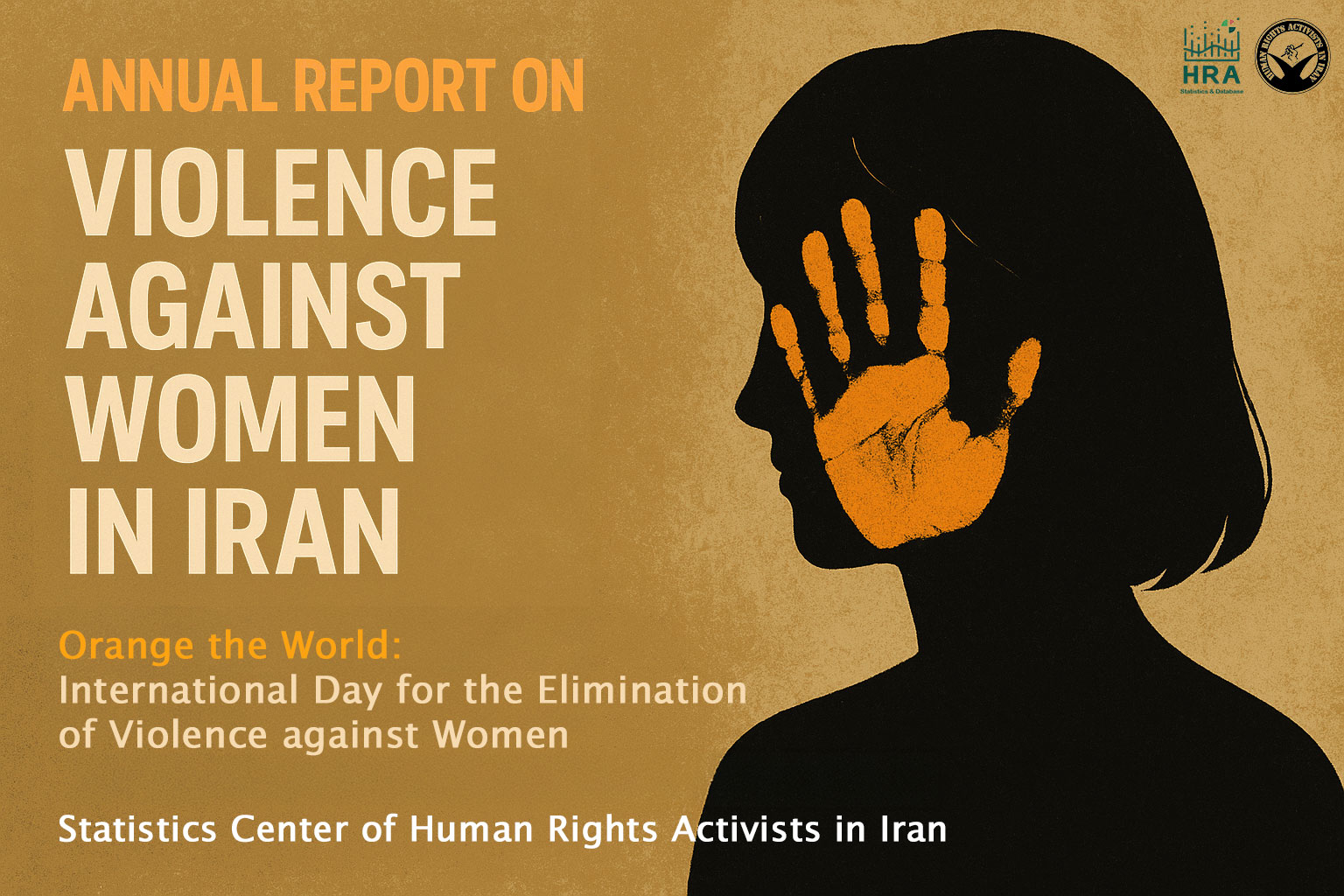HRANA– Iran has been hosting Afghans for years and has occasionally expelled illegal immigrants, but after the war with Israel, the intensity of actions against Afghans has reached an unprecedented level. This complex humanitarian crisis has had consequences for both remaining migrants in Iran, returning citizens, and has also caused devastation for the crisis-stricken country of Afghanistan. According to statistics, as of the beginning of 2025, more than one and a half million Afghans have returned to their country from Iran, and in just a few weeks after the end of the conflict with Israel, this process has accelerated dramatically, with tens of thousands of people crossing the borders daily.
Iranian authorities have cited security concerns and allegations of cooperation between some Afghan immigrants and Israel as the main reason for this harsh treatment. Iranian state media has attempted to strengthen this narrative by broadcasting confessions from unidentified individuals. However, Mohammad Monan Reisi, a member of the Iranian parliament, has openly stated: “Not even one of the detained spies were Afghan citizens.” These statements show that even within Iran, there is no consistent narrative on this issue.
Legal loopholes in Iran and their consequences for Afghan immigrants.
After the political regime of Afghanistan was handed over to the Taliban, the country was placed among the poorest countries in the world due to unfavorable socio-political conditions, drought, and widespread economic recession. Although conflicts have decreased in Afghanistan, violence, fear, deprivation, and extreme poverty continue to force people in this country to migrate to other countries, especially Iran and Pakistan. The open borders have led to the entry of many Afghan refugees into Iran, but on the other hand, Iranian legal laws have not provided the possibility of integrating Afghan immigrants into Iranian society and have deprived them of even the most basic human rights. The legislature has not passed comprehensive and up-to-date laws regarding the entry and acceptance of refugees and their protection, and has not specified regulations related to census, conditions and procedures for applying for asylum, decision-making authority, determination of refugee status standards, refugee rights, their obligations, conditions for extending residence, and necessary conditions for obtaining citizenship.
Afghan migrants in Iran are not permitted to have bank accounts or SIM cards and are deprived of public services in many parts of the country. Being denied such basic rights has stripped Afghan migrants of the possibility of social and class mobility, resulting in marginalization, isolation, increased poverty, and heightened vulnerability. Their employment as unskilled labor in construction, agriculture, livestock, and poultry farming has aligned the Afghan population in Iran with the lowest social and economic classes of the country.
Yet, if lawmakers had facilitated their access to educational, academic, and suitable job opportunities, their living conditions would have improved, and their contribution to the gross domestic product would have increased. Under labor law, Afghan migrants are only permitted to work in 37 designated occupations. However, among them are educated and skilled individuals whose capacities and abilities remain unused, as they are instead pushed into hard manual labor.
Overflowing social anger on the bodies of immigrants.
In recent years, the economic conditions in Iran have been devastating. The increase in unemployment, inflation, and daily price hikes have put a strain on the lower-income groups in society, causing their struggles to worsen every day. The economic pressures and internal crises in Iran have intensified anti-immigrant sentiments in society and have led to the spread of discrimination and violence against Afghans.
“Masoumeh”, who is originally from Afghanistan and has been living in Tehran for twenty years, says: “I had promised my daughter to register her in the library. We gave our passports to the library official, but they said they cannot accept it because its validity is less than six months. When I protested, they said that we are foreigners and our situation is different, it is not clear if our residence will be extended after two or three months, and the library has its own specific rules. We gave up on becoming members of the library. When we were returning home, my daughter asked me what does being a foreigner mean? And I didn’t know how to answer her.”
“Maryam”, a 22-year-old Afghan student living in Tehran, says: “I feel a lot of anger among people, even my Iranian friends. When people can’t express their anger towards the inefficiency of the government, they transfer it to weaker individuals.”
In such conditions, the publication of articles such as the use of Iranian subsidies by migrants has made the society’s attitude towards Afghan migrants more bitter, and some Iranians have opened their mouths to protest, insult, and even threaten in various online spaces, and have launched campaigns that call for the expulsion of Afghans as a “national demand”. However, it should be noted that migrants in Iran are not just consumers; they work in sectors such as agriculture, construction, and urban services under the most difficult working conditions, with low wages, without legal support, insurance, or retirement benefits, and they pay for services and facilities such as education, healthcare, and transportation, which are sometimes even more than Iranian citizens. Furthermore, they have to pay significant amounts to the Iranian government annually for visas, residence permits, census cards, work permits, document renewals, and travel permits.
“Ali, who is from Afghanistan and works in the construction industry in Tehran, says: “These days, I hear from many people that they say the party is over, go back to your own country. Which party? In these years, they have humiliated us in every way possible, and they have blamed us for every problem. They say we have consumed too much, yes, that’s true, but did they pay us a fair wage? Did they give us insurance or retirement benefits? I know someone who fell from a scaffolding and spent hundreds of times more money on treating his broken limbs than what he had earned. I heard once that some construction company had built a tower and instead of paying the workers, they called the police to arrest them all. How bad do I have to show you that their employers have taken their money? I dare to say that this issue of not paying wages has happened to all Afghans.”
However, “Hossein”, who is Iranian and works as a barista in a cafe, says: “The lack of water, electricity, gas, housing, and jobs is the fault of the Afghans. It puts our safety and the safety of our families at risk. The soldiers who don’t die, don’t pay taxes, and even use free subsidies. Other countries attract specialists and investors, but we, in the midst of economic and energy crises, have attracted millions of non-productive people. A party for one year, two years, not forever, and that too for thousands, tens of thousands, not five or six million people. In this war, it seems that many of the destructions have been caused by these very people.”
Accusations of espionage after the war with Israel have fueled violence against Afghan residents in Iran more than ever. In addition to hearing insults in the streets, there are now many reports of Afghans being beaten, stabbed, or denied services in banks, bakeries, pharmacies, schools, and hospitals.
“Sharif”, who is from Afghanistan and is a caretaker, says: “If someone makes a mistake, we should not all be blamed for it. The situation has become such that I am afraid of both the people and the government. I don’t feel safe anywhere. Some people have been beaten on buses and subways, and they have repeatedly accused me of being an Israeli spy.”
“Wajiha”, a 24-year-old who came to Tehran and lives with her family in Qods city, says about the riots she has seen: “I was in a taxi when the driver said it’s because of people like you that Iranians are being killed. I told him we didn’t do anything. We are just trying to live our lives. Once, in line at the bakery, a woman who had bought a lot of bread was telling others that she buys these breads so that Afghans don’t get them. They have occupied our country.”
“Narratives of Forced Return.”
The war with Israel shattered the relative stability that existed in the lives of many Afghan refugees living in Iran, causing many to lose their jobs and be forced to leave Iran. “Nadia,” who had been living in Iran for four years and whose husband ran a shoe workshop, says: “We came to Iran from Afghanistan because of unemployment and insecurity, but the war between Iran and Israel changed everything. The work conditions became difficult for my husband and he was unemployed for a while. At that time, we decided to go back. We spent a night without food and water in a refugee camp, then we headed to Kabul. I love Iran very much, I was crying when we crossed the border.”
Returned immigrants tell heartbreaking stories of the process of deportation, from being arrested on the streets and at metro stations, to sudden police raids at their workplace and physical abuse, and humiliation.
“Hamid”, an Iranian engineer, talks about his experience of violence that he has witnessed: “I went to the car wash and suddenly a white van entered the premises. All the workers stood up. A young soldier got out and found some of them among the cars and took them into the van. As the van drove away, two of them came down from the top of the roof. They were worried about their friends and said they might be sent back empty-handed tonight. They informed the car wash manager to take their documents to the police station, and they started washing my car. One of them said, “I used to be in the military, but when the Taliban came, we were forced to come to Iran.” The other, who was very young, showed me the spot where the Taliban’s bullet had hit him in his leg.”
“Fatima” says: “My younger brother crossed the border last week. While they were taking him, he was wearing flip flops and they sent him to Afghanistan like that. When he called, he said they beat him with a hose. I am a student in Iran and I am supposed to stay here, but my parents wanted to go back to Afghanistan and now that my brother crossed the border like this, they took my father too.”
“Maryam” says: “They arrested some children on the street and sent them back to Afghanistan alone. They took a ten-year-old child and didn’t allow her to call her mother. When her mother arrived there, they also arrested her, while her young daughter was at home.”
“Mehdi”, who works as a laborer in the Tehran market, says: “When they take us to the camp, I wish they would cross the border quickly. They keep us there for a long time in the heat, chaos, and lack of facilities. There is no news of water or food either. In this very camp, I knew someone from Asgarabad who said if you want to buy mineral water there, you have to spend three hundred thousand tomans. He said some people died in that situation. In the end, those who cross the border have to pay three million and three hundred thousand tomans for the bus to take them to the border.”
Media and human rights reports indicate that even some Afghans with valid residency documents have been forcibly expelled. Mehdi says, “Many times, even those who are authorized and legal cross the border. Then, every year, God knows how much money is taken from the Afghan people to renew these documents.”
Among them were also those who had exit papers and were supposed to leave for Afghanistan on a specific date with their families, but unfortunately were caught in the streets, alleys, or at their workplace and were forced to leave without any plans for their home and life.
Kulthum says: “I am pregnant and I am left alone in Islamshahr with my three children. I have no one. My husband was taken by the police and sent to Afghanistan. He had a census paper and we were supposed to leave Iran ourselves. But the police took him from our house and sent him to a camp. Whatever I told them, that I have an exit paper, it was useless. No one listened. He couldn’t even get his salary because his employer said he would settle it after the project is finished. Now my husband is in Herat, I am here, I have to manage our house and life alone and go to Afghanistan.”
Many Afghans, before being able to even receive their wages or the money for their rented homes, or gather their belongings, were forced to leave Iran with brief warnings. Those who resisted and stayed to fight for their rights are at risk of being arrested. “Ahmad” says: “A few weeks ago, I told the landlord to return my house deposit, which was 500 million tomans. But the landlord said the house was deposited to a company for rent and he can’t give me the money until a tenant is found. It’s been a while since I’ve been calling and he doesn’t answer. I spent twelve years in Iran, I sweated and was humiliated until I could gather this money. According to the exit permit, we were supposed to leave Iran a few weeks ago, but now we’re stuck waiting to see what will happen to our money. To avoid being arrested, I take an early morning Snapp (ride-sharing service) to work and come
During their decades of residence in Iran, some immigrants have been successful in buying houses. However, due to legal restrictions, they have not been able to register the property in their own names and have been forced to include the name of an Iranian individual in the deed. Now that many of them are forced to leave Iran and intend to sell their homes, they are facing serious problems because buyers are not willing to pay the real value of the property. Instead, they use various pressures and excuses to try and force the immigrants to sell their homes at a lower price.
“Shakib” says: “Three years ago, I bought a 60 square meter unit in Kahrezak. Since I couldn’t have the deed in my own name, I put the house in the name of one of my Iranian acquaintances. When the date for the exit papers approached, I couldn’t find any fair buyer to purchase the house at its price. I was forced to sell the house at half the price to the same person whose name was on the deed.”
The migration crisis is a reflection of all the failures.
What is presented in this report is not only a narrative of the suffering of Afghan migrants, but also a clear depiction of the mechanism that, in the face of crisis, chooses denial and blame instead of responsiveness and structural reform. In days when the country is struggling with political, economic, and social consequences of war, the Iranian government has tried to divert attention from its own shortcomings by highlighting the role of Afghan migrants as a “security threat” or “additional pressure on resources.” Instead of accepting responsibility for economic crises, weaknesses in crisis management, and lack of planning in areas such as employment, education, public services, and foreign policy, the Iranian government has turned Afghan migrants into a tool to deflect public opinion and cover up its own failures. Afghans have now become the scapegoats of a system that, in order to survive, needs to create an “enemy,” even if that enemy is children who were born in Iran and have never seen their homeland of Afghanistan.
The first step in solving the migration crisis is to abandon “blame politics” and “accept responsibility”, something that is missing in the current narrative more than anything else.
Written by Pardis Parsa
Originally published in Khat-e Solh (Peace Mark) monthly magazine on August 23, 2025.







